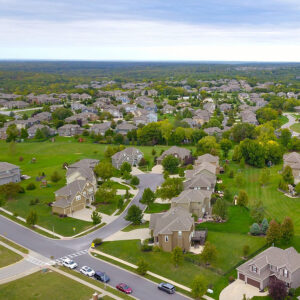More Updates on the Enforcement of the Corporate Transparency Act

There have been more developments in the cases arguing the enforceability of the Corporate Transparency Act (CTA). On Monday, December 23, 2024, the U.S. Fifth Circuit Court of Appeals lifted the preliminary injunction, which blocked the enforcement of the CTA, issued by the U.S. District Court of the Eastern Texas earlier this month. This presumably restored the January 1, 2025 deadline for filing of the beneficial ownership information (BOI) report.
However, recognizing that additional time may be needed by reporting companies to comply, given the preliminary injunction, FinCEN has extended the January 1, 2025 deadline until January 13, 2025 for reporting companies created or registered prior to January 1, 2024. These companies will need to prepare and file their initial BOI reports with FinCEN to comply with the January 13, 2025 deadline.
We will continue to update on developments on this matter as the related cases are litigated. If you have questions or need a BOI Report filed on behalf of your company or community association, please contact us here.
Related Information:
Corporate Transparency Act Enjoined
Corporate Transparency Act and Beneficial Ownership Information Reporting Requirements
Are Community Associations Reporting Companies Pursuant to the Corporate Transparency Act?
- Published in Business, Community Associations, Condominium Owners Associations, Home Owners Association
Are Community Associations Reporting Companies Pursuant to the Corporate Transparency Act?

The Corporate Transparency Act (CTA) is a federal law that requires certain businesses to disclose information about their beneficial owners to the Financial Crimes Enforcement Network (FinCEN). The CTA was enacted in 2021 as part of the National Defense Authorization Act with the purpose of preventing and combatting financial crimes.
The CTA requires certain business entities to file a Beneficial Ownership Information (BOI) report with FinCEN. You can learn more about the BOI reporting requirements here.
Much effort has been made to change the CTA to provide an exemption for community associations from the BOI reporting requirements, however, nothing has changed. Most homeowners associations and condominium owners associations will be required to file a BOI report by January 1, 2025. The exceptions to the reporting requirement are associations that 1) are actively held as a 501(C)(4) organization with an IRS exemption or 2) are operating within the United States, have an annual revenue of $5,000,000.00 or more, and have 20 or more employees. Most community associations will not meet the requirements of these exemptions.
The information that will be required for the community association is: 1) legal name, 2) any other identifiers such as “doing business as” or “trading as,” 3) current street address of principal place of business, 4) jurisdiction of formation or registration, and 5) tax payer identification number.
The information that must be provided by the Board Members is: 1) Individual’s name, 2) date of birth, 3) residential address, and 4) identifying number, such as a license or passport, and the state which issued the identification. Beneficial owners must also provide an image of the identification.
Any reporting company and/or beneficial owner who willfully violates this requirement may face civil penalties of fines up to $500 per day that the violation continues and criminal penalties of up to 2 years imprisonment and up to $10,000 in fines. Penalties may be issued for willfully failing to file, filing false information, or failing to correct or update a previously filed report.
Here are some helpful links:
If you have questions regarding the BOI reporting requirements and/or the CTA, or your association needs help filing the report, please contact us at (513) 643-3554 or info@richterlaw.us
Security Camera Usage and Community Associations

As technology as has advanced, and home security cameras have become more accessible to people, the issue has provoked many questions for community associations. Some of these include whether a homeowners’ association (HOA) or condominium owners’ association (COA) can or should prohibit owners from installing cameras, what type of guidelines should be implemented for the use of security cameras by owners, and whether the HOA/COA can install security cameras in common areas.
Use of Security Cameras by Individual Owners
While there is mixed evidence, some studies suggest that home security cameras and systems deter crime up to 50%. Thus, allowing owners to install and utilize home security cameras allows a sense of safety, and may in fact actually deter crime throughout the community.
However, privacy concerns should also be considered and weighed against safety concerns. Cameras should point away from neighbors’ windows and backyards. They should never be able to capture another’s private space.
Furthermore, the installation of cameras is typically considered an architectural change and should comply with the architectural guidelines and standards of the community association. If HOA/COA approval is required for architectural changes, owners should follow the procedures of the community association for approval before installing cameras.
Cameras and Common Areas
When a Board of Directors of an HOA or COA is considering installing cameras in common areas, they should first consult the governing documents. These documents often contain rules and guidelines regarding the use of cameras. Typically, cameras are used in common areas such as fitness centers, clubhouses, event spaces, and elevators. Again, privacy concerns must be considered. Cameras should not be used in areas such as bathrooms or changing rooms or point towards anywhere that captures private property.
Another consideration when deciding whether to utilize cameras in common spaces is cost. There is equipment, installation and maintenance costs but also the potential cost of having someone monitor and store the footage. A Board implementing camera usage must also decide who will access to the footage and what circumstances allow that person(s) to review footage.
If an HOA/COA Board is thinking about implementing security cameras in common areas, it should create and adopt a policy addressing all of these things. Moreover, if there are concerns over individual owners’ security cameras, a Board should consider amending the association’s community documents to include specific restrictions, guidelines, and/or standards with regards to cameras.
Solar Panels and Community Associations

As energy costs increase, technology advances, and people become more concerned about environmental conservation, more people are considering installing solar panels. This is becoming a bigger issue within communities which are part of a condominium owners’ associations or homeowners’ associations. New legislation addressing solar panels in community associates was enacted fairly recently (September 2022).
Solar Panels in Condominium Communities
Condominium declarations may continue to completely prohibit solar panels. If a condominium declaration does not prohibit solar panels, Section 5311.192 of the Ohio Revised Code permits unit owners to install them on the roof of their units if there is not another condominium unit above or below them, and one of the following is applicable:
- The unit includes the roof and the cost of insuring, maintaining, repairing and replacing is the responsibility of the owner and is not a common expense; OR
- The condominium declaration specifically allows for and regulates the types and installation of solar energy collection devices in the common or limited common elements and determines who is responsible for the cost to insure, maintain, repair, and replace such devices.
In communities where solar panels are permitted, the board can establish reasonable restrictions concerning the size, place, and manner of placement of soler panels.
Solar Panels in HOA Communities
Similar to the law on condominiums, solar panels may be prohibited by the Declaration of Covenants, Conditions and Restrictions of a homeowners’ association. If the declaration does not prohibit solar panels, owners may install solar panels on their lots as long as they are responsible for the maintenance and repairs of the areas on which the solar panels are installed. In communities with HOAs, is likely that an owner is responsible for the roof of the structure and all parts of the lot. HOA boards also have the right to establish reasonable restrictions concerning the size, place, and manner of placement of solar energy panels.
It is important for HOA and COA boards to determine whether they would like solar panels to be permitted or not, and if they will be permitted, the restrictions that may need to be established. The association’s documents may need to be amended to establish and protect the desire of the community regarding solar panels.
Richter Law can help answer questions and address concerns you may have about solar energy collection devices in your community and assist with any document amendments.
Handling Hoarders and Hoarding in the Community

Hoarding by a member of the community has become an often-discussed topic in recent years, especially after the addition of hoarding to the Diagnostic and Statistical Manual of Mental Disorders (DSM-5). When a community member is hoarding, or suspected of hoarding, the community association board (HOA or COA) must address the concerns of the residents while also respecting the rights of the suspected hoarder.
Signs of hoarding may include: foul odors, insect or rodent infestation, dirty or constantly closed window coverings, visible blockage of windows, dirty windows, and noticeable stacks of clutter. It is important for the Board to take action if there is suspecting hoarding in the community to protect the health and safety of the residents within the community.
Condominium Owner Associations and Homeowners’ Associations have governing documents that prohibit residents from creating safety hazards and nuisances. Most association documents require residents to maintain their homes in safe and sanitary conditions. HOA and COA Boards should create rules that discourage residents from creating and maintaining unsafe conditions and allowing unsanitary and potentially hazardous situations in their homes. Having these rules in place allows Boards to enforce the rules and handle a hoarding situation in the same way any other rules would be enforced. However, while a Board has a duty to address the hoarding situation and try to come to some resolution, it must also be sensitive to and balance the rights of the owner suspected of hoarding.
Since hoarding is a medically recognized mental disability, there are both federal and state legal protections for the owner suspected of hoarding. Therefore, a person who suffers from hoarding may be entitled under the Fair Housing Act and Ohio Revised Code §4112.02 to reasonable accommodations to afford the owner equal opportunity to use and enjoyment of their home. A successful reasonable accommodation plan often involves collaboration between the owner, the HOA/COA Board, mental health professionals, social workers, and/or other advocates. Family members and friends may also play an important role in assisting the owner with compliance of rules.
When facing a hoarding situation, a board must balance its duty to maintain safety and sanitation standards for the entire community with the rights of the owner. Creating rules that aid in prevention of hoarding conditions and enforcing them fairly and uniformly and allowing a reasonable accommodation request will help the Board minimize any liability.
If you suspect there is a hoarding situation in your community, please reach out to Richter Law for assistance and guidance on how to navigate the issue.
- Published in Community Associations, Real Estate, Real Property
What to Know When Purchasing Property In An HOA/COA Community

Many communities, especially in suburban areas, have a homeowners’ association (HOA) or condominium owners’ association (COA). Often times, buyers begin their quest towards home ownership in HOA or COA communities without knowing what being a part of the association entails. Here are some practical tips when considering purchasing an HOA or COA community.
Inform Your Realtor of Your Expectations
Some are strongly opposed to purchasing a home that is part of a homeowners’ association or condominium owners’ association. In that case, the realtor representing the potential buyer should be made aware of that so time is not wasted showing the potential buyer homes in an HOA/COA community. Other potential buyers have no problems with living an HOA/COA community but have a certain dollar amount range they are willing to pay for assessments. Again, discussing this initially with the realtor is helpful because a realtor should have the HOA/COA assessment amount information and can limit the home search to communities with assessments in the buyer’s budget range.
Review the HOA/COA Governing Documents
Many Purchase Agreements contain a Homeowners’ Association/Condominium Owners’ Association Provision clause, which requires a seller to deliver the association’s governing documents to the buyer within a specified amount of time. Moreover, it allows the buyer a specified amount of time to review those documents and to rescind the contract if the buyer is not satisfied with any of those documents. If a Purchase Agreement does not contain one of these clauses, it is important to have an attorney or realtor include one before submitting a formal offer. Once the seller provides the association’s governing documents, they should be thoroughly reviewed. Look at the monthly or annual assessment amount, the common areas and amenities, the rules, regulations and restrictions, and also any design guidelines. For example, if it is important to you to place a perimeter fence around your yard, make sure fences are allowed in the community.
Status Letter and Account Transfer
When a person purchases a property in an HOA/COA community, the title company that is handling the closing should request a status letter from the HOA to make sure that all of the assessments are current and there are no encumbrances on the property. There are also HOA transfer fees that are charged to cover the expenses of the necessary transitioning activities and paperwork from the seller to the buyer. The HOA transfer fee will generally cover the new documentation and paperwork involved in setting up a new homeowner. This transfer fee is typically paid by the seller. Make sure prior to closing that the title company requested and received a status letter and that it initiated the HOA/COA account transfer.
Buying a property in an HOA/COA community can be a great decision, since the primary goal of a community association is creating a desirable community and protecting property values. Knowing about the homeowners’ association or condominium owners’ association and understanding what is required of the owners can help potential buyers to avoid future issues with the HOA or COA. Richter Law is experienced with community association documents and can help you review a community association’s governing documents and answer any of your questions.
- Published in Community Associations
Collecting Delinquent HOA Assessments

Community Association assessments are vital for the operation of the association. These assessments are used for things like the maintenance of common areas and amenities, landscaping, insurance, management, legal and other professional fees, and reserves for future capital repairs and improvements.
When owners are not paying their fair share of the assessments, it is crucial for the association to promptly attempt collection of delinquent assessments. Delinquencies can cause delayed maintenance and repairs, thus possibly result in a reduction of property values.
There are multiple ways to attempt to collect delinquent assessments including placing a lien on the property, filing a complaint in small claims court, or filing a foreclosure action against the property. Moreover, if a judgment is obtained, it can be collected through wage or bank account garnishment.
It is important to discuss the collection of delinquencies with an attorney. At Richter Law, we can discuss your association’s delinquent assessments, the various options, and determine which option will be best for the situation.
- Published in Community Associations
Does An HOA Need Management?

Operating and managing a homeowners’ association can be challenging and confusing. HOA Boards are typically made up of a group of volunteer owners from the community who are tasked with determining what their duties are and how to fulfill them. Many HOAs employ community management services to help run the association.
What Is HOA Management?
HOA management assists the board with its many duties and responsibilities, which helps the overall goal of the HOA to protect property values and maintain a desirable community. HOA management steps in to help the association with maintenance of the common areas, collecting assessments, collecting delinquencies, handling complaints, resolving conflicts, preparing budgets, managing reserve funds, and other duties that an HOA is required to carry out. This is helpful to boards that do not have time or knowledge to handle the many aspects of operating the HOA.
Does My HOA Need Management?
There are many community associations that are self-managed and operate successfully. One consideration when deciding whether the association needs HOA management is the size of the community. A large community may have more common elements and amenities to be maintained. Moreover, a large community usually generates greater volume of complaints, questions, variance requests, records, and assessments that need to be collected and managed. This can be stressful and difficult for the board.
Another factor to consider is the knowledge, or access to it, of the board members. HOAs need access to legal advice, accounting and tax services, financial services, insurance coverage, and companies to maintain common areas, such as landscaping companies. Experienced property managers are very knowledgeable about homeowners’ associations due to education and experience. Furthermore, HOA management companies typically have a large network of professionals that are utilized by HOAs. This can save the HOA a lot of time because the management company can contact and retain the necessary vendors and professionals on the association’s behalf.
Finding the Right Management Company
If the HOA determines it needs HOA management, the next step is finding the right management company. Management contracts typically last for a duration of one (1) year, but some are multi year contracts. Thus, it is important that the management company is the right fit for the association. First, the association should determine its needs, whether that be full-service management or help with particular aspects of operating the HOA. It is also necessary for the board to establish a budget for management services.
Next, the HOA board should send Requests for Proposals to the HOA management companies of interest. These requests should state the HOA’s budget and the desired scope of services. The management companies will then send the association a proposal, which outlines the fees and services it will provide.
Once the board has reviewed the management companies’ proposals, it should make a short list of management companies and begin to interview those candidates. The board should create a set of questions and criteria to evaluate and compare different companies. Budget is an important part of the decision process, but the cheapest company is not always the best. Make sure to weigh services against price.
After the HOA has chosen a management company, the board should review and negotiate the contract. It is important to ask questions about any terms or clauses the board is unsure about. The board should also negotiate any terms it feels are unfair or that its uncomfortable with. An HOA attorney can also review and negotiate the contract on your behalf.
Finally, after the contract is signed and the management company is providing services to the HOA, the board should monitor the services and its satisfaction with the company. Make sure the company is fulfilling its duties pursuant to the contract and discuss any dissatisfaction with the manager.
If your homeowners’ association has questions regarding HOA management or needs help reviewing and/or negotiating a management contract, please reach out to Richter Law.
By: Attorney Amber Richter. See profile here.
- Published in Community Associations
Creating Clear and Enforceable Rules

Typically, a condominium owners association’s (COA) and homeowners association’s (HOA) governing documents set broad parameters and restrictions for governance of the community. The association’s documents grant power to community association boards to create and establish more specific rules and enforcement procedures that are tailored to the needs of the particular community. A COA board will typically have a broad scope of rulemaking authority. A HOA board’s scope of authority is typically less.
It is important for HOA and COA boards to review their governing documents so that they understand the scope of their authority and to assess whether the current rules and guidelines are still working for the community. Condominium associations boards and homeowners associations boards should create and establish clear and reasonable rules. Clear rules provide guidance to owners on what is allowed and expected within a community. This allows owners to live in and enjoy their property and the community within the parameters of those guidelines.
Moreover, HOA & COA boards should also adopt clear enforcement procedures and be sure to apply those procedures properly and fairly to all owners of the association. Homeowners Association and Condominium Boards can quickly find themselves in a tough and expensive situation when they try to enforce rules against one owner but has failed to enforce the same rule against a different owner.
Also important is being aware that federal, state, or local law may supersede the rules and guidelines a board has adopted. For example, a board may allow fences to be installed on the entire perimeter of a property, but a local ordinance may require a certain amount of setback from the property line.
Our firm can help with any questions your board has regarding the scope of its authority. If the board has not reviewed the governing documents of the association for quite some time, it may be a good idea to sit down with an attorney and go through a review. Furthermore, we have experience in helping boards create, adopt and enforce rules and guidelines for community associations. Please reach out to us to schedule a time to discuss your HOA or COA board’s specific needs.
See Attorney Amber Richter’s Profile Here
- Published in Community Associations, Home Owners Association








